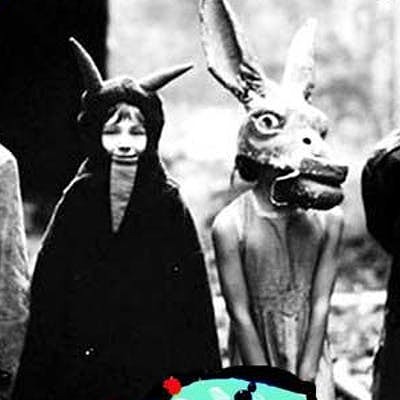Tom Ziegler began his time at the Tap Room in 1952 as a customer, he said. "They were nice, and the bartenders were wonderful," so he kept coming back between his stints working as a driver for a trucking company. In 1959, after a severe accident, Tiger left trucking behind. It wasn't long before he was offered a job at the Tap Room.
He's been there ever since.
The first thing to know about Tiger, and therefore the Tap Room, is so simple that he can spell it out for you.
"It's like Aretha Franklin says: R-E-S-P-E-C-T," he says while cleaning glasses one afternoon, firing the letters off as quickly as if he made the song a hit himself—though considering how many times he's probably heard it throughout the years on the Tap Room's old, oft-broken jukebox, the fact that he can fire it off so quickly isn't much of a surprise.
It's a common theme throughout conversations with Tiger: Respect isn't just something that he asks for from his patrons, but for everyone in the bar and especially from the women of the Tap Room, whom Tiger takes extra care to look after.
"A lady knows that she's not going to be bothered here," he says. "I'm not tolerating any misbehavior. A woman has as much right as a man to come in alone, and sit and drink and be by themselves and not be bothered."
It was in enforcing that policy that Tiger earned his nickname.
It was a Saturday night in 1965. Ziegler was asked by his then-manager Bill Cleveland to watch the bar while Cleveland took his wife out to dinner. The train had just come in, and the bar was packed. As he's working, a beautiful woman walks in. Tiger then notices a huge man, 6 foot 4 and 300 pounds, and looks down to pour a beer. Then he hears a scream.
"I looked up and saw his hand on her breast. I dropped the beer, went over to him and I yelled at him: 'There's two doors: one there and one there, and I suggest you get out right now,'" Tiger recalled, pointing to the exits of the Tap Room as he tells his story.
"He could've popped me. I was waiting for it, but he just meekly walked out the door," Ziegler said. "Unbeknownst to me, my boss and his wife had come back, sitting at the end of the bar, and he yelled out to me 'Go get him, Tiger!'"
The name stuck.
Despite his age, his spirit is as youthful as it's ever been, springing up to boot out undesirables whenever he needs to; in fact, a new Tiger story was created the morning that I came to interview him.
The bar had just opened up at 11 a.m. when one of the hotel's guests came down to grab a drink. He'd been acting erratically, claiming that people were "out to get him," but he was clean enough and, at the very least, he could pay ("He had a room upstairs, so I figured he had money," Tiger said). So he was served until he started yelling for no reason at a group of customers who had just walked in.
Tiger went off.
"I said, 'Don't you ever talk to my customers like that! You finish your beer and I don't want you doing anymore talking like that.' He finishes his beer in one gulp and walks out. I went to the desk clerk, told them that he didn't pay, and that I wanted the charge put to his room. It turns out he did something untoward out here, and they 86'd him."
"He can stick that up his culo ... pardon me," Tiger added.
To Tiger, money isn't the driving factor for what he does; he cuts off patrons when he suspects they've had too much to drink, politely asking them to get something to eat, offering them some coffee. He tells me that he doesn't want anything to happen to the people he serves, that he "doesn't need money in that cash register for someone to get killed."
It's the people that keep bringing him back, day in and day out, to the Tap Room.
The Soul of Congress
The Tap Room itself has as long and colorful a history as the people who stand behind its bar.
Though it opened shortly after the repeal of Prohibition, the Tap Room's modern history started to take shape in the 1940s and '50s when it became known as a gay bar, splitting patrons with noted hangouts such as the Town House (which closed following a raid in 1955), the Zebra Room and the R&B Bar, according to research by Tucson Observer editor Bob Ellis.
The Tap Room kept its closeted reputation for decades, rolling on through the mid-'80s and into the ownership of current Hotel Congress proprietors Richard and Shana Oseran. At that point, it "came out" and began actively soliciting gay clientele with a slogan of "Meet your friends!"—though it's worth noting that the Tap Room seemed to go back and forth on its closeted/out status, drawing a mention of its trip back into the shadows on the front page of the Observer in May 1985.
According to former Hotel Congress manager Mary Ann Brazil, the Tap Room always seemed to keep a fairly closeted reputation, even with "not-quite-closeted" people pouring drinks behind the bar.
"It was always an anything-might-be-going-on-in-there kind of scene," she said, though she could always count on Tiger to keep people in line, and to keep the place "decent."
Of course, as with any somewhat divey bar, it can only be decent for so much of the time; in the late '80s, artists and hipsters began to frequent the Tap Room, thanks to the opening of Club Congress. It was then that a culture clash began to rear its head, according to Brazil.
"It used to be that, when the club had started, and the crowd would be transitioning from day to night, we almost started to do a clean sweep ... it was just too weird to mix the day people who would be hanging out with Tom with all of the young, fresh faces coming in for club night," she said.
"Those old guys would be there, and they had mouths on them; I remember this tense and weird time and I remember a couple of the bartenders coming up with a horrible unfriendly policy, telling everyone to drink up and get out. They'd literally throw everyone out who was drinking with Tom," she said.
For Hotel Congress' entertainment director, David Slutes, that time holds a special place in his heart, especially one day in December 1987.
"We were all gathered around on Christmas Eve; it was snowing outside and there's a handful of us and Jack, the old classic night bartender," he said.
That night, there was nothing going on in the night club or, for that matter, the hotel. Just a dozen of the Tap Room regulars, liquor, snow and warm feelings, Slutes said. "It was like a beautiful, Bukowski Christmas Eve."
For Slutes, and many of the musicians, artists and hipsters of the time, the Tap Room was a common theme in their lives.
"Most of my girlfriends I've met there; most of my breakups I've had there. I've lived most of my social life through that bar, and I'm not alone," Slutes said.
"It was all very fun," Brazil said. "Tom and his crew were always very much watching over us kids; it was true not just for the Tap Room, but for the entire hotel," she said, remembering the elderly residents who were still living in the rooms of the hotel when the Oserans bought it.
Vince, Mr. Bennie, and the barflies
The last of those residents was Vince Szuda, who lived in the hotel for more than 50 years, until his death in 2001. During that time, he kept up regular employment in the hotel as a maintenance worker, custodian and a bit of a treasure hunter, as Brazil noted in an obituary she wrote for Szuda that was published in the Tucson Weekly ("Sound the Conga," Currents, March 1, 2001):
"... In the course of his hunting he would discover many things that might again be useful, including a phenomenal amount of recyclables: aluminum, glass (by color), cardboard, newspapers and magazines, plastic cups, rubber bands, bits of string or rope, any key, paper clip or pen (even if it didn't write now he'd put it point down in a cup until the last drop was ready and you could maybe dot an "i" before you threw it out all over again) ... "I, for one, hope he becomes an instant ghost. If your consciousness is clear, maybe you'll still see him at the hotel, checking the pay phone for change, or taking apart the booths in the club looking for dropped dollars from the barflies, or shining his flashlight on the floor behind the bar looking for the tips that didn't make it when they were thrown into that big brass pot in the Taproom."
Richard Oseran remembered Szuda as a "character"; a crotchety old man who had a bottle of cheap vodka delivered to his room every week; who would turn down the gift of a metal detector for a pair of new shoes; and someone who, when he was ready to pass, decided that he'd give his money to the people he spent the end of his life with.
"He said to me, 'I'm going to be leaving you some money when I go,' Oseran said. "I didn't take him too seriously, and said to him 'Well, thanks, Vince. What do you want me to do with it? Create a memorial room?'" And he said, "I don't care what you do with it, it's your money!"
Shortly after Szuda died, the time came for Hotel Congress to renovate the Tap Room once again. It was then that Clif Taylor, who oversaw the renovation, decided to honor Szuda alongside the longtime Tap Room regular known as Mr. Bennie Flemming, who was as renowned for his fashion sense and theories about the Kennedy assassination as he was for the quarter he kept behind his ear. According to Taylor, it was a relic from Fleming's days as a shoeshine boy, something he used to keep himself from getting earaches.
When it was time for the renovation, Taylor took a totem for each man (the quarter for Mr. Bennie, a dog tag from Szuda's military service) and carved out space in the bar for each of them. "Those two were legendary characters and they were so involved in that bar," he said.
During that renovation, the last major one in recent years, they made a few other significant cosmetic changes, installing marble behind the bar, placing mirrors on both sides of the bar and etching matching symbols from the columns of the Tap Room into the mirrors.
During that time, they also found lost art by Pete Martinez, the legendary artist whose drawings already adorned the bar he most frequented.
"We've done everything we can to preserve it for what it is, and I think Tiger is a big reason for that," Taylor said. "I can't imagine changing it and having Tiger be in there in someplace different. We've gone a long way to keep it what it is, and he's definitely a big part of that ... for such a tiny little space, it's packed in so much cool, weird filthy history."
That "filthy" bit of history he's referring to? That was for the women's restroom, which originally had an entrance directly from the bar, where the wall of glass blocks currently stands.
"That bar has seen so many crazy fucking nights, man," he said. "I had so much fun in that bathroom ... it bummed me out when they closed it, because it kind of used to be your own kind of den of iniquity. I wish it could talk, you know? It was filthy dirty; not quite like the Grill's legendary trashy bathroom, but it was close," he said.
But no matter how much the bar changes, one thing will always stay the same: the barflies who like to patronize what some call the best place to day-drink in Tucson.
For some, it's a place to grab a beer and to catch up with old friends. For others, it's because it's a quiet place that brings back pleasant memories. But, of course, there are a few who are drawn to the Tap Room for one reason above all others:
"Tiger, man! I come here to talk shit with Tiger, that crotchety old man," I'm told by Robert, one of the daytime regulars whom I find myself next to one afternoon.
As far as I'm aware, Robert is one of the few people who isn't a big fan of the neon sign that reads "Tiger's Tap Room" atop the Tap Room's shelves. It was presented during Tiger's 80th birthday party in May. Robert says it's not the kind of tribute he'd have given the longtime barkeep.
"It's kinda cheesy. I wish the owners would've given him something like $5,000 and sent him off to Vegas for the weekend, or given him a Rolex or something, you know?" Robert said, alluding to Tiger's penchant for slipping away to the casinos on his days off.
"He told me he did really good at the casino this weekend," Robert said. "I asked him, 'How'd you do, Tiger?' He said, 'Excellent.'"
"Every person who comes through that door is a star"
In talking to Tiger about his 80th birthday party, you learn that, in a way, he was actually kind of uncomfortable with it.
"It was so busy," he said. "I was traumatized, happily. People kept trying to ask me questions, and I was working, and to have this traumatic, nice thing happening ..."
Pictures from the day tell the story; one, which ran in a story published by The New York Times, shows Tiger overcome with emotion, "crying good tears," as Robert put it.
It was then that reporters from all over really began to shine a light on Tiger, asking him questions that really didn't mean much to him, chief among them being whether there was a particular celebrity he enjoyed waiting on.
He scoffs at that one.
"Let me tell you something: Every person who comes through that door is a star. They're a celebrity," he said. "They've got a reason to come in and see me and spend their money when there's a hundred other bars in Tucson. As long as they behave themselves and don't bother my ladies, they're all celebrities.
"Black, white, green, purple, rich, poor, hobo—as long as they're clean and they behave themselves ... I don't care if it's the poorest guy in shredded clothes. As long as he's clean, he's going to get the same service as Howard Hughes."
When you ask around, you find it's that attitude that has brought Tom Ziegler the friends and fans that he has; it's why he has a collection of rings on his fingers, all of them given to him by customers; it's why he, from time to time, shares a breakfast with a woman who brings him food that she's made that morning before work. Unfortunately, his friendships also result in one of the hardest parts of his job: losing people.
For the longest time, an elderly woman would come to the patio outside the Tap Room in the mornings and sit outside. She never ordered a drink; all she wanted was coffee and conversation, Tiger said.
About three years ago, something changed. She said she was going to go live with her son, and she told Tiger, "I don't think I'll be coming downtown much anymore, but I'll think of you."
She hasn't been back since.
At a certain point in your life, it just becomes a fact: People, for one reason or another, just start to come and go. But as Tiger gets older, it becomes more difficult for him.
"I get a lot of different people coming in. College kids, tourists ... you get attached to them. It's hard on me," he says. "I'm terrible with names ... it's so embarrassing. If I don't remember someone's name, I apologize, tell them that I don't remember ... they understand I'm getting old."
Tiger works only four days a week now, though "only" is a bit of an understatement when you consider that he's 80 years old and still spends more than 30 hours a week behind the bar of the Tap Room.
Among his peers, Tiger's longevity and passion for his job are what set him apart from everyone else.
"I'm in awe of him," says Tom Fortier, a bartender at Hotel Congress. "The notion of being at one place, at one job, for over half of a century is just not something you see ...period."
For Richard Oseran, it's difficult to consider the Tap Room without Tiger, who "came with the place" in the purchase, he said.
"We've kind of always taken Tiger for granted, as always being there, always a part of the place. He's always been treated the same way; just a relationship, as opposed to an employee," Oseran said. "Now he's 80 years old, spent 54 years there, and with the neon we had made (for him) it'll always be Tiger's Tap Room. He's just a sweet man, a gentleman, and he couldn't weigh more than 110 pounds out of the shower but he has an ability to control that place completely."
But Tiger doesn't plan on leaving anytime soon, saying that he'll stay until they fire him or he can't work any longer.
"I can't stay at home. I have no hobbies; what the hell am I going to be able to do at home? Twiddle my thumbs? I look forward to coming to work. You see, I work so hard; it's such a hard job," he quipped as we chatted in what was, at the time, an empty Tap Room.
Oseran said Tiger's influence at Hotel Congress is everywhere. His passion for service is shared with his fellow employees; his natty, cardigan-and-bola-tie style is reflected in the hipsters who frequent the nightclub; and his wit and kindness are a part of what makes you feel comfortable at Hotel Congress.
"I was fortunate to have this come in my life, and the people that come here. I'm very, very lucky," Tiger said. "I have friends for life here ... even though I don't remember their names, they forgive that."











